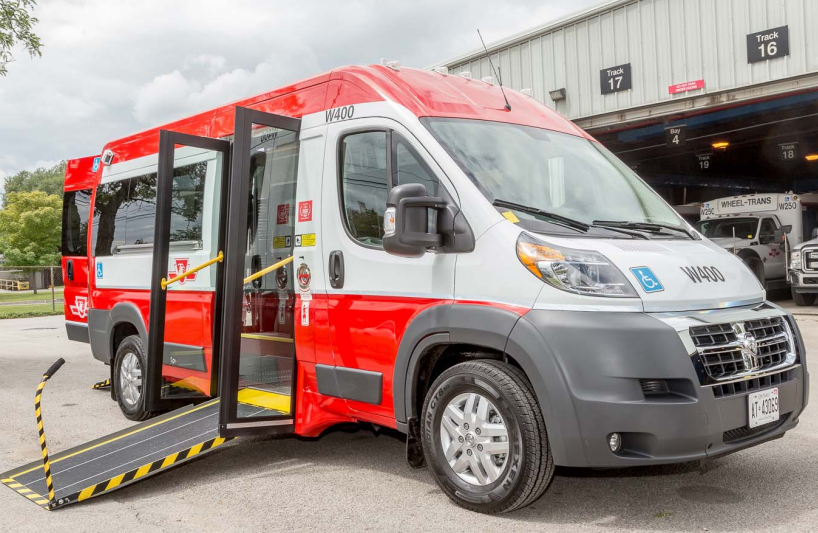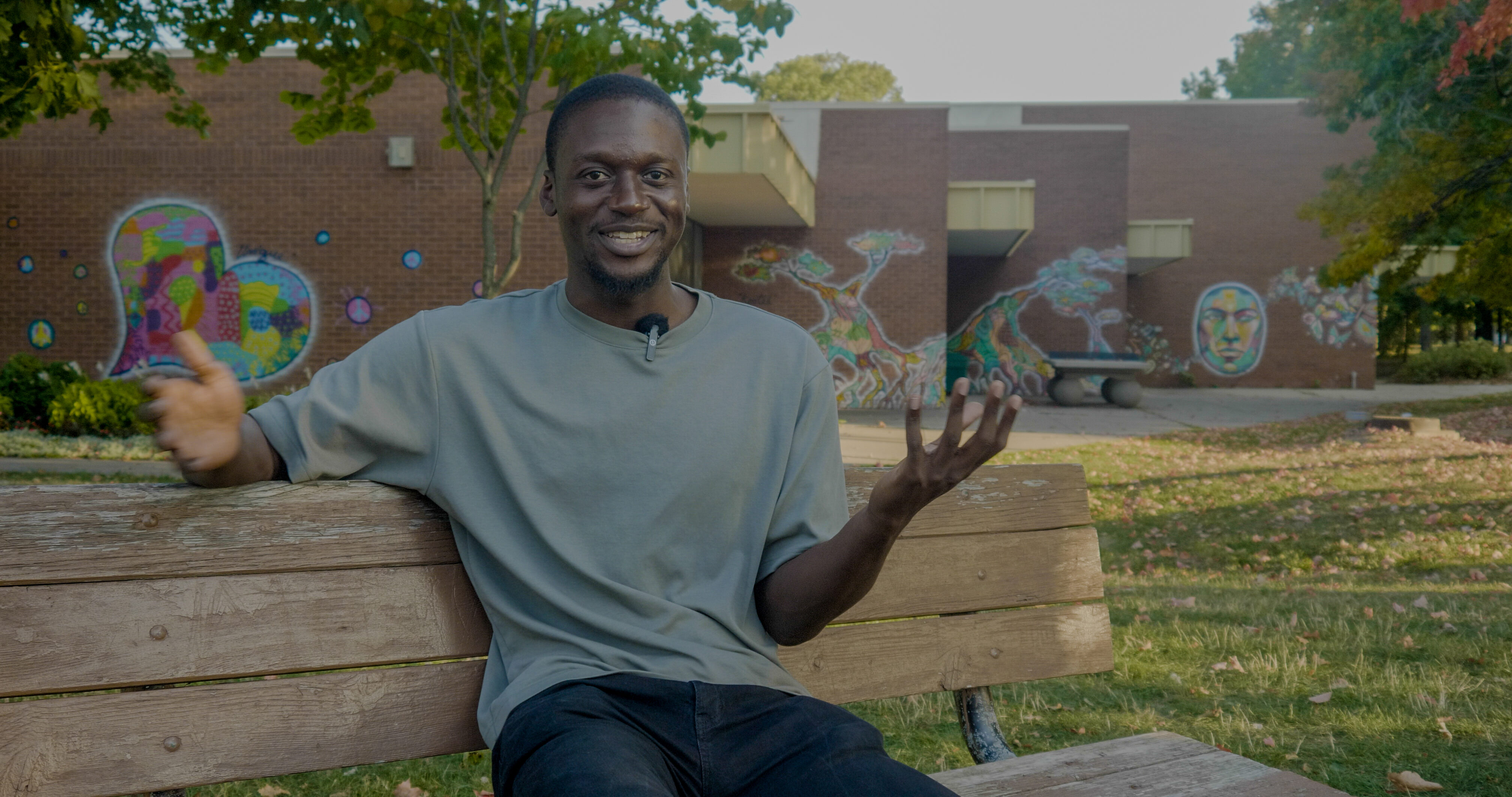THE GREEN LINE
DOCUMENTERS NOTES
Wheel-Trans users ask TTC to protect door-to-door bus service in Toronto
In a recent TTC board meeting, Wheel-Trans users and advocates voiced concerns about accessibility and equity as the board debates the future of door-to-door transit services and the "Family of Services" route.

Eligible people with disabilities can use Wheel-Trans mini buses to commute.


Eugene Slonimerov
A Belarusian-Canadian who specializes in urban and conflict studies and the arts. Cares about abandoned public spaces, community building, mapping memories and solving the housing crisis. Kensington Market is home.
Dec. 4, 2024
These city meeting notes are part of Documenters Canada. Learn more about our program here.
Did you know that Dec. 3rd is the International Day of Persons with Disabilities?
It’s fitting that the Toronto Transit Commission (TTC) board had a tense meeting that day to discuss door-to-door mini-bus service, Wheel-Trans, for people with disabilities.
The Accessibility for Ontarians with Disabilities Act (AODA) currently assigns people with disabilities into “conditional” or “unconditional ” eligibility categories to access Wheel-Trans services. The conditional status means you can be offered a “Family of Services" (FoS) route which is a mix of Wheel-Trans and regular transit options. This means the Wheel-Trans bus might pick you up at home, drop you off at a subway station where you’ll commute for a few stops before being picked up by another Wheel-Trans bus who will then take you to your final destination.
As the TTC board met to discuss the new five-year accessibility plan and the Wheel-Trans Transformation Program, many people with disabilities who were in attendance voiced concerns that the city is trending in a direction that would make the FoS route mandatory for more Wheel-Trans users. Mandatory FoS has already been rolled out in the York and Durham regions.
Kate Welsh, a Wheel-Trans user and project coordinator at the Centre for Independent Living in Toronto, called on the TTC Board to protect door-to-door service and called the Family of Service plan inequitable and inaccessible.
Several attendees in the meeting shared stories of getting stranded in remote locations in harsh weather, coming across broken elevators at subway stations and missing the connecting conventional transit bus to the next Wheel-Trans bus on FoS routes. Some said they had to pay for expensive cabs because of these issues or they had to cancel important outings, which led to missing out on employment or being isolated from community.
Terry Lynn Langdon, a health equity researcher at the University of Toronto who used the FoS route once, shared how she discovered a number of broken elevators at Queen’s Park, Spadina and St. George stations despite access applications saying the elevators were working fine. She finally made it to her destination after 1.5 hours each way and took two expensive cabs on the way home.
Gabriel Reznick, a lawyer at ARCH Disability Law Centre, has represented many riders who appealed the conditional status. He argued that the FoS program and its eligibility criteria failed to meet human rights legislation and made getting around less accessible. He pointed out that oftentimes doctor notes required for “unconditional” door-to-door service are disregarded by the panel in charge of determining the eligibility status of riders with disabilities. He noted that every single appeal has been successful leaving him to wonder if documentation is only considered more carefully at the appeal stage.
Coun. Josh Matlow asked TTC staff if they are in fact planning to cut door-to-door and make more people “conditional.” Cameron Penman, head of Wheel-Trans at TTC, responded that riders can choose to opt out of FoS routes. Penman added that the TTC is not planning to cancel door-to-door services unless the board recommends it.
Our Documenter Eugene Slonimerov later followed up with Shelagh Pizey-Allen, executive director of TTC Riders, who clarified that many of the regular or new Wheel-Trans riders are simply unaware of the option of refusing when the system automatically routes them a mixed FoS route to their destination.
What were the outcomes of the discussion?
Coun. Josh Matlow’s motion for TTC staff to report back with an equity analysis of the impacts of Family of Services trips on Wheel-Trans users passed.
Coun. Matlow’s motion to request the provincial government to provide funding for increased Wheel-Trans service also passed.
Coun. Jamaal Myers’s motion for city staff to report back on opportunities to maximize TTC investments in providing accessible transportation services to customers with disabilities by September 2025 also passed.
What does our Documenter have to say?
TTC Riders requested data on the number of FoS trips by postal code for their report on which Toronto neighbourhoods would be most affected by mandatory FoS routings. Using their data, Sebastian Tansil found that there were 333 FoS trips going from or to Alexandra Park, Chinatown and Kensington Market between June 2022 to September 2024.
One of our documenters, Taylor Simsovic, who works at the Fort York Food Bank (FYFB) noted that food bank clients sometimes wait up to two hours for the next available Wheel-Trans bus after picking up their groceries.
Fact-Check Yourself
Sources and
further reading
Don't take our word for it —
check our sources for yourself.
Care about our city, but don't know how to make it better? Sign up for simple, step-by-step guides to solving problems in your neighbourhood — one small action at a time.
